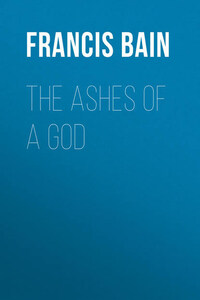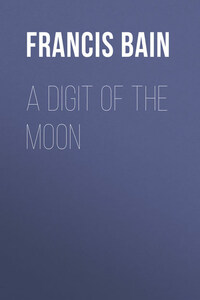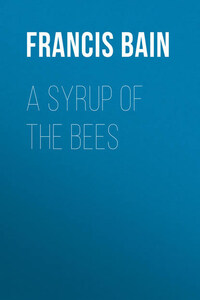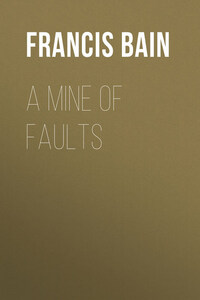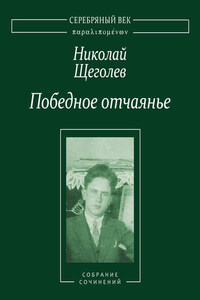That mischief-making deity, the god of Love, who delights in getting others into trouble, got himself, once upon a time, if we may trust the poets, into trouble of no ordinary kind. For seeing, as he thought, his opportunity, he attempted to inflame Maheshwara himself with passion for the virgin Daughter of the Snow, who was standing shyly just in front of him, like an incarnation of irresistible seduction, raised to the highest power by the contrast between her coarse bark garments and the perfect beauty of the figure they enclosed. And then it was that the biter was bit, and Love himself was suddenly reduced to ashes for his impudence by a pulverising glance from the angry Maheshwara's terrible third eye, that opened for an instant, for unhappy Love's discomfiture, like the door of a blast-furnace upon a moth. And the pale young Moon looked out upon it all, from the hair of the angry god; the pale new Moon, that very Digit, who gives the title to our story, being therein described as so superlatively lovely, as to be capable of causing the very god of Love to rise from his own ashes.
For it is to be remembered that Love's ashes are no common ashes: they have in them something of the phoenix; they are always ready to revive. The beautiful lament of Rati (Love's wife), over the ashes of her husband (overheard by Kálidás), was really, had she only known, superfluous. He was sure to come to life again. Or, to speak plain English, a great passion is immortal: its very ashes are never absolutely dead. Breathe close upon them, and, as one of our own poets has said, it may be flame will leap. And this is the solid reason why the old Hindoo sages denoted both Love and Recollection by one and the same word. Memory, remembrance, regret, reminiscence; – all these are clearly closely akin, near relatives of Love. What is indifferent to us we soon forget; but we remember what we love, and the longer, in proportion as we love it more. And thus it comes about, that the most formidable obstacle to the would-be sage, the candidate for honours, as we might call him, in renunciation of the world, is his own recollection, his memory of the past. The object of the sage, according to the old Hindoo doctrine, is to become absolute master of himself (jitátmá), to render himself completely superior, or rather indifferent, to the "attachment" of all mundane clogs. The ordinary mortal is a prisoner, tied, bound in bondage, or attached (sakta), to and by the objects of delusion and sense. Whoever aims at emancipation must first, by a long and strenuous course of penance and austerity, sever these attachments, till even though he still remains among them, they run off him like water from a duck; and he goes on living, according to the classic formula, like a wheel that continues to revolve when the original impetus has ceased, or like a branch that goes on swaying after the departure of the bird. He is awake, as opposed to those who still remain blinded by illusion; he is free, as contrasted with the bound; his soul is unattached. But now, there is one thing, from which it may very well be doubted, whether even any sage, no matter what his elevation, was ever wholly free – regret. The strongest soul possesses the most powerful recollection, and unless madness intervene, to cut the thread by obliterating memory, there are things that refuse to be forgotten. And where recollection is, there is sure to be were it but a vestige of regret; for memory is love. And what, then, is it, that is of all things most peculiarly the object of regret; that laughs at all efforts to reduce it to oblivion and nonentity; that refuses to be driven into the oubliettes of any soul? Needless to say, a woman. And therefore it is, that she is regarded, in Oriental mysticism, as beyond all other things the enemy of emancipation; the clog par excellence; the fetter of the soul; the everlastingly regretted, the unforgettable and unforgotten; the irreducible residuum; the inextinguishable spark among the ashes of the past. Was it not Swift, among whose papers, after his death, was found a packet, labelled in his own handwriting: Only a woman's hair? And did not Coriolanus find in this the thing to thwart him, the obstacle that stood between his resolution and the overthrow of Rome? But we need not go to history or fiction to prove a thing endorsed by the experience of almost every man and woman since the beginning of the world. Everybody knows, what one has said, that youth is a blunder: manhood a struggle: old age a regret. Death is preceded by a sigh; did ever anybody die, who had absolutely nothing to regret? And regret, in the language of the old Hindoos, is nothing but the ashes of dead love, not utterly extinct; and therefore, since all love is more or less divine, the ashes of a god.
The ethical value of India's beautiful mythology is not sufficiently appreciated in Europe, whose people seem to think that virtue was discovered by themselves, and have learned from Xenophanes and Plato, S. Paul, S. Augustine, and other shallow politicians to deny all morality to polytheism,[
